Courses
| Semester | Course Title | Course ID | Credits |
|---|---|---|---|
| Spring | Photophysics of Organic Semiconductors | 85991313 | 3 Credit/ 48 Hours |
| Fall | Optical Properties of Materials | 85991442 | 2 Credit/ 32 Hours |
| Fall | Molecular Photochemistry | 85991682 | 2 Credit/ 32 Hours |
Photophysics of Organic Semiconductors (Spring Semester)
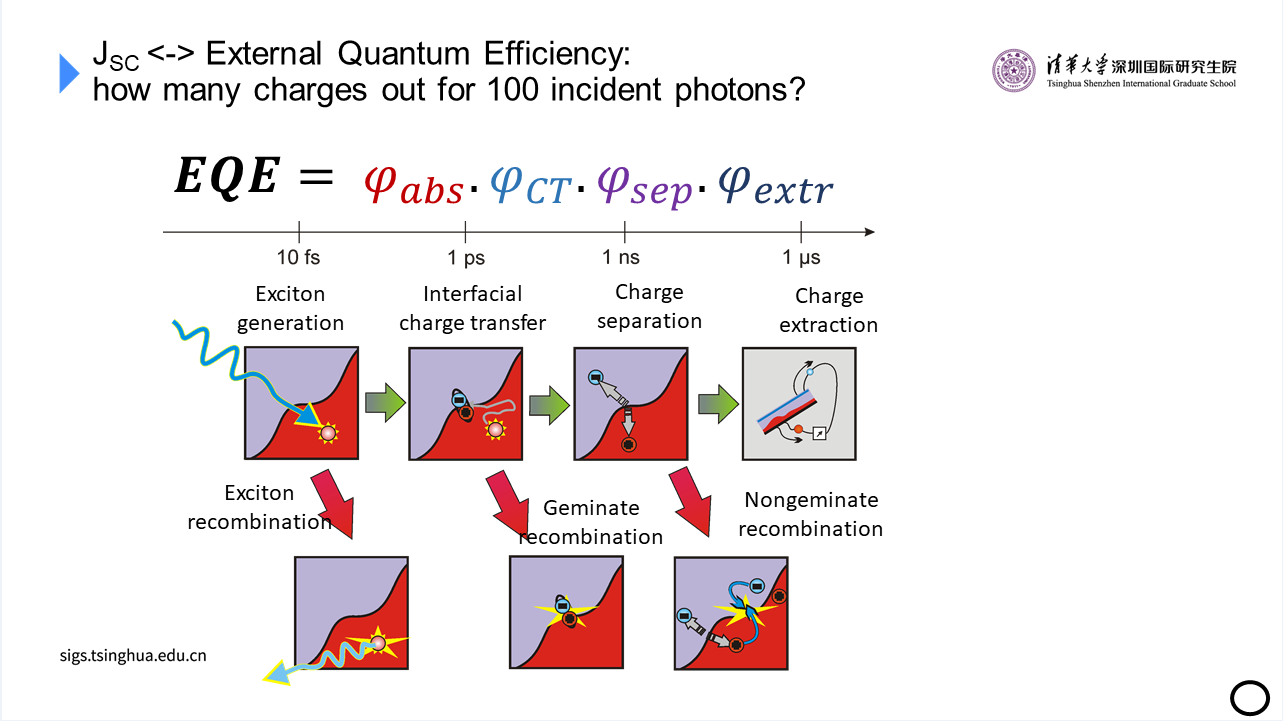
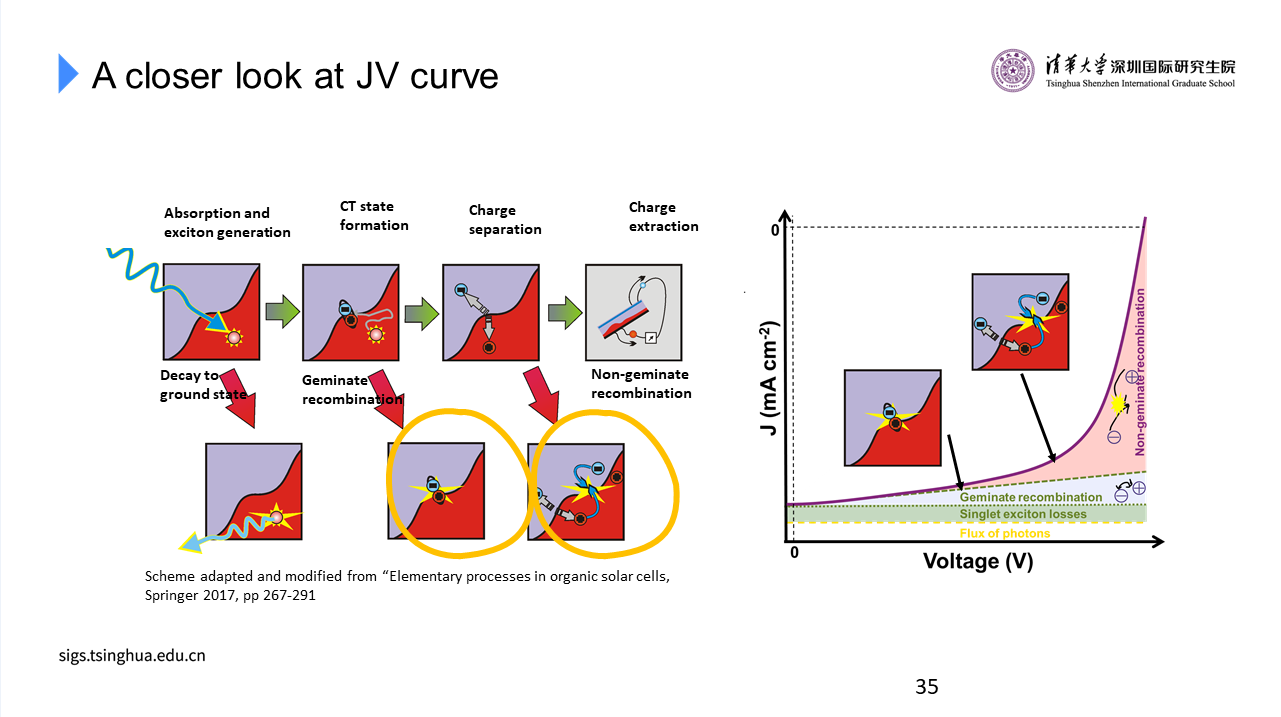
Course Description:
This comprehensive course provides an in-depth introduction to electronic processes in conjugated organic materials that are widely utilized in various optoelectronic devices, including light-emitting diodes (LEDs) and organic solar cells. The course begins by elucidating the theoretical fundamentals of electronic transitions and excited states, particularly focusing on excitons—an important phenomenon in these materials. It covers the principles and mechanisms underlying these processes, building a strong foundation for understanding the subsequent topics. This course offers a comprehensive overview of the theoretical foundations, measurement techniques, emission spectra analysis, energy transfer mechanisms, technological applications, and advanced spectroscopy techniques related to electronic processes in conjugated organic materials. Aspiring researchers and engineers in the field of optoelectronics will gain a solid understanding of these materials and their applications through this course.
Course Objectives:
1: Familiarity with the molecular properties of organic semiconductors
2: Understanding the characterization techniques used for organic semiconductors
3: Knowledge of charge generation and transport mechanisms in organic semiconductors
4: Insight into the applications of organic semiconductors
5: Awareness of the latest research advancements in this field
Course Credit: 48 Credit Hours and 3 Credits
Optical Properties of Materials (Fall Semester)
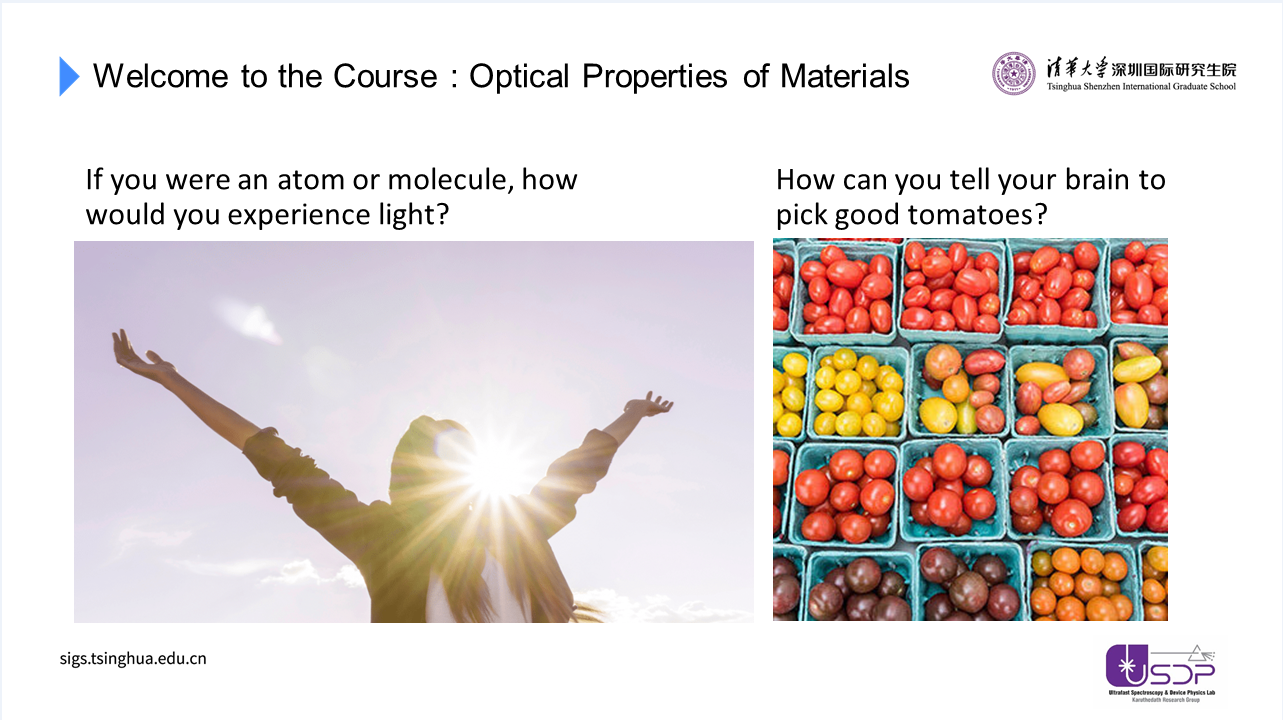
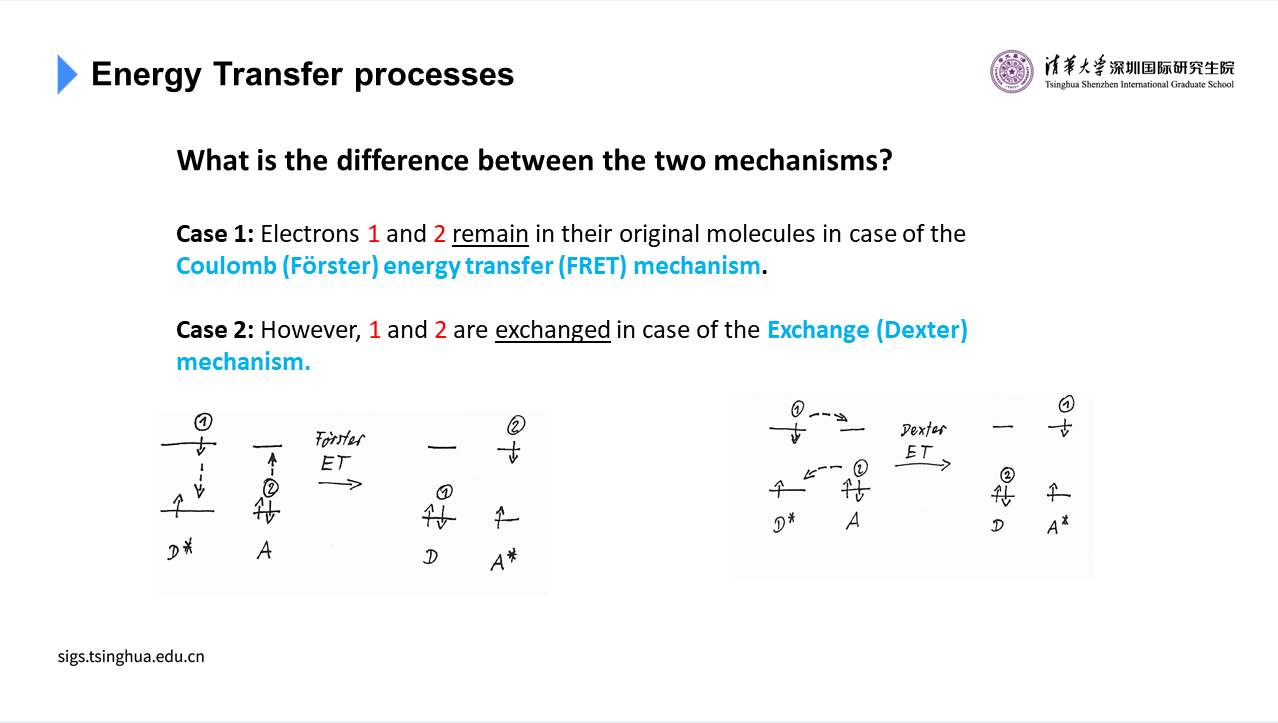
Course Description:
Controlling the interaction between light and matter is crucial to the workings of modern-day society. The course “Optical Properties of Materials” is designed to provide students with a comprehensive understanding of the physical properties of materials that are crucial in the design and optimization of optical systems. Whether in commercial or research settings, having knowledge about the optical properties of materials is essential for achieving optimal performance in optical devices and systems. The course primarily focuses on semiconductors and low dimensional materials, widely used in applications such as photonic devices and optoelectronics. The course will be especially beneficial for students who work with materials and light and those involved in the design of optical systems.
Course Objectives:
- Understand the fundamental concepts and theories related to the optical properties of materials, including the behavior of light in various materials such as semiconductors and dielectrics.
2.Gain knowledge about the concept of light-matter interaction and its relevance in various disciplines
- Analyze and interpret experimental data related to optical properties of materials using techniques such as spectroscopy and photoluminescence measurements.
- Communicate and present complex concepts related to optical properties of materials in a clear and concise manner, both orally and in written form.
Course Credit: 32 Credit Hours and 2 Credits
Molecular Photochemistry (Fall Semester)
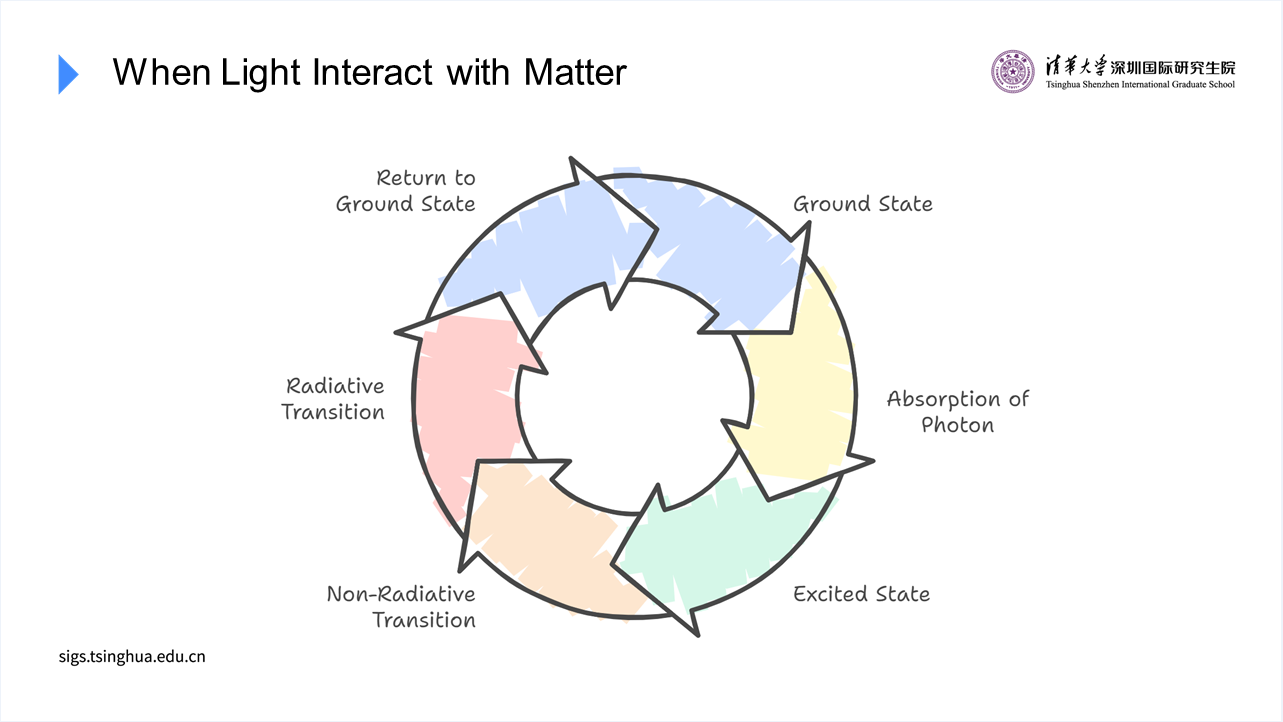
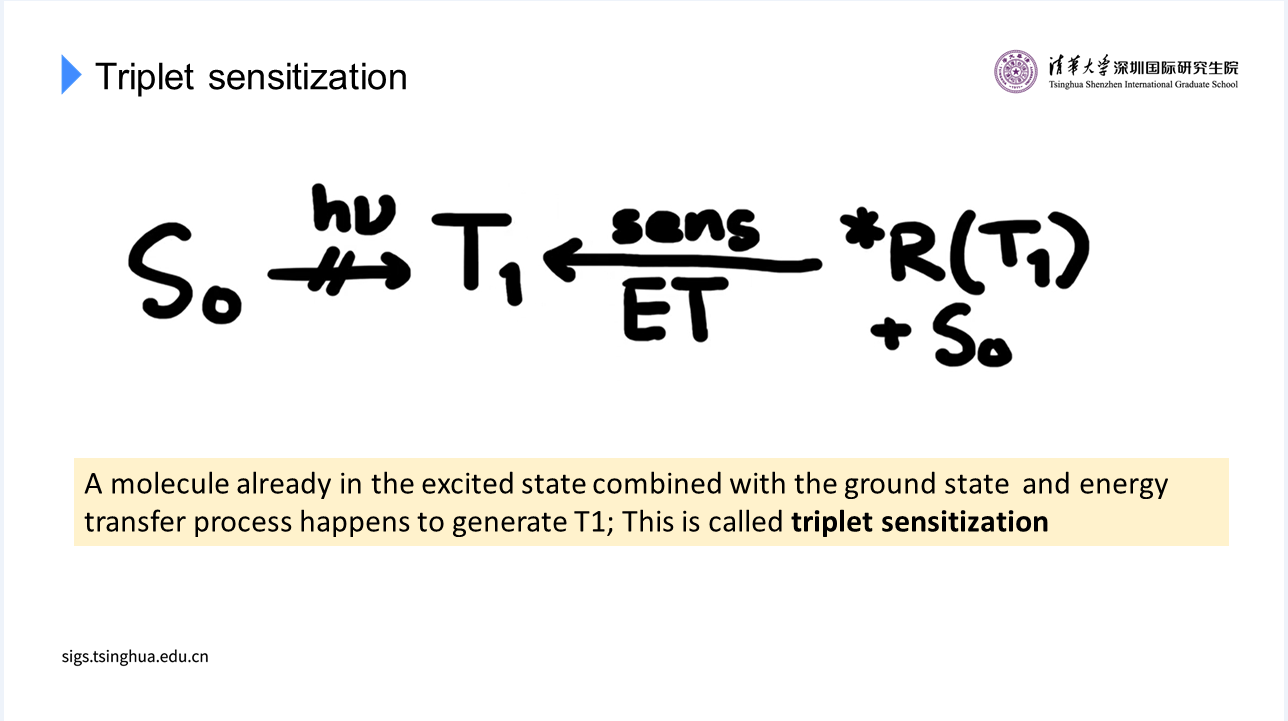
Course Description:
This course discusses the fundamental and advanced concepts of how light interacts with molecules, leading to various photochemical and photophysical phenomena. This course offers a comprehensive exploration of the mechanisms behind light-induced processes, including the study of excited states, energy transfer, and charge transfer within molecular systems. Practical laboratory sessions will enable students to perform and analyze photochemical experiments, utilizing techniques like time-resolved photoluminescence and transient absorption spectroscopy. By integrating theoretical knowledge with hands-on experience, the course aims to equip students with a robust understanding of molecular photochemistry and its applications. This course encompasses a comprehensive study of how light-induced processes influence molecular behavior.
Course Objectives:
- Gain a comprehensive understanding of the principles governing light and matter interaction.
- Comprehend the electronic, vibrational, and spin structures of excited states using Natural Bond Orbital (NBO) descriptions.
- Explore and apply the Franck-Condon Principle to understand photophysical transitions.
- Explore energy transfer and photoinduced charge transfer
- Gain proficiency in time-resolved photoluminescence and transient absorption spectroscopy techniques.
Course Credit: 32 Credit Hours and 2 Credits
